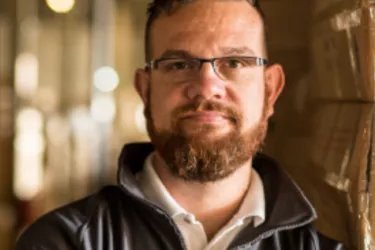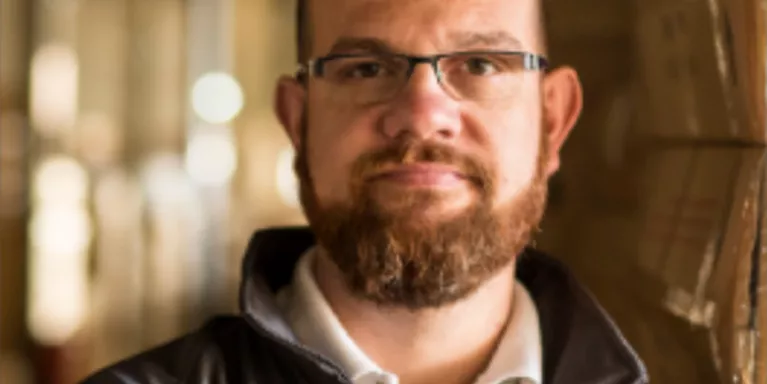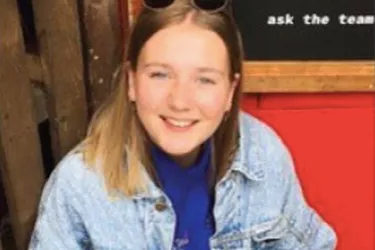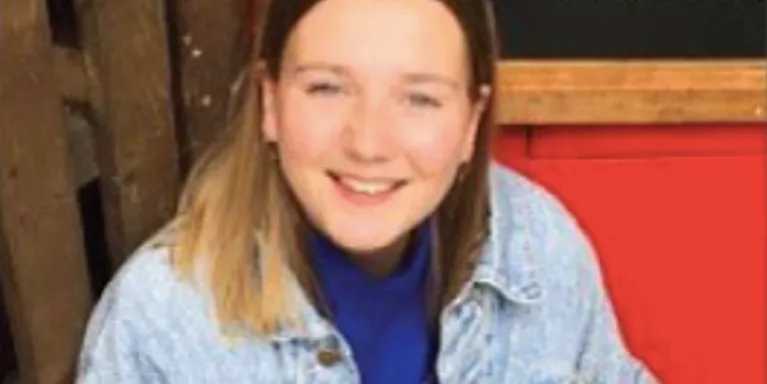Keeping Julia’s memory alive
Sarah remembers her sister Julia and how she lives on through her words.
Sarah Macpherson is an occupational psychologist who is passionate about raising awareness of mental health issues.
Julia was my older sister and loyal soul mate. She was intelligent, creative, talented, caring, and had a wicked sense of humour. Despite a six-year age gap, we were very close. Life was never boring with her around and I miss her every day.
Julia did not have an easy start in life. She suffered from a range of health issues from an early age. She could remember losing her baby brother when she was only three, and the subsequent sadness and strain on her parent’s marriage.. However, when she was six, she was delighted with the arrival of her long-awaited baby sister. She chose my name, carried me everywhere and doted on me all her life.
"Her English teacher said she was the most talented pupil he’d taught, but her sensitivity meant she would “find life hard"."
Julia’s creativity and intelligence presented some challenges.
My mother remembers her English teacher saying that whilst she was the most talented pupil he’d ever taught, her extreme sensitivity meant she would always “find life hard”. She also struggled with low self-esteem and mood swings and went from one unhealthy relationship to another. Unknown to us at the time, these were her experiences of borderline personality disorder, with which she was later diagnosed.
Julia got her degree in cultural studies and secured a career in publishing. She then took time out to go travelling in Asia with her future husband, where she contracted a tropical virus and returned to the UK feeling physically and emotionally low. A new, highly pressurised role in a large publishing house working for a demanding and unsympathetic manager led to a few weeks off work with stress and anxiety. She returned to find her job had been ‘removed’. She had been effectively dismissed in her absence, as mental ill health was then and sadly still is stigmatised in many workplaces. She then suffered a complete breakdown, which led to group therapy and outpatient treatment. She recovered sufficiently to volunteer in Mind’s communications team, which led to a permanent role within the press office. Julia found the role enjoyable. Here she was able to work flexibly and be open about her mental health without feeling judged or stigmatised.
Unfortunately, some years later, she began to suffer, unexplained and incapacitating migraines which led to her being becoming addicted to strong pain killers. The end of her marriage and death of her father led to subsequent in-patient stays in mental health wards and rehabilitation centres over the next two years. After being stabilised under the care of an excellent psychiatrist, Julia was sent, against her will, by nursing managers to an out-of-area private healthcare facility, as her hospital bed was needed by a more urgent patient.
Despite our concerns, Julia’s medication was changed and her condition deteriorated.
She was given a high dose of an anti-psychotic drug but the physical side effects were not well monitored by staff, and she spent three weeks in intensive care battling pneumonia On her discharge to a different psychiatric ward she was weak and confused. She was unable to care for herself or chew her food properly. We were shocked at the change in Julia and despite voicing our concerns, clinicians not only continued to prescribe the same medication, but steadily increased her dose without us knowing
"An inquest ruled that side effects of her medication had been a key factor in her death."
The week before Julia died, we requested an urgent review by her consultant as we were alarmed by her further physical deterioration. Tragically this was too late. Two days later, Julia collapsed on a short trip from her ward. All attempts to resuscitate her failed. We were devastated. Eighteen months later, an inquest ruled that side effects of her medication had been a key factor in her death.
Throughout everything, Julia was a loving, caring sister, daughter and auntie, and great support to the friends she made in hospital.
"We are delighted to see Julia’s work in print. She lives on through her words."
We always knew that Julia was a prolific writer and voracious reader, and after she died, we had the task of going through her writing - some she had already published but we also discovered many handwritten, unseen works. Although Julia was self-deprecating, our mum always recognised her abilities and ‘Waiting for Another Velvet Morning’ is the result.
We are delighted to see Julia’s work in print.
Our wish is to raise awareness of the different ways that mental health problems can affect people and the need for improved treatment and care.
Julia would want us to continue to support Mind, a charity she was passionate about. Profits from her book will be shared between Mind and The Compassionate Friends. We are proud to be associated with these charities and know Julia would be too. She lives on through her words.
Julia’s book can be purchased through Cerasus Poetry and Amazon.


Information and support
When you’re living with a mental health problem, or supporting someone who is, having access to the right information - about a condition, treatment options, or practical issues - is vital. Visit our information pages to find out more.
Share your story with others
Blogs and stories can show that people with mental health problems are cared about, understood and listened to. We can use it to challenge the status quo and change attitudes.

















